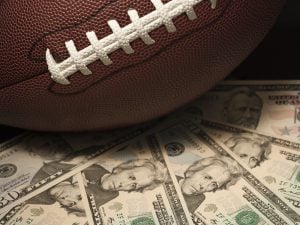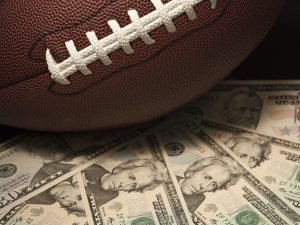
On August 23, the Baltimore Ravens terminated the contract of safety Earl Thomas, claiming that Thomas’s personal conduct adversely affected the organization. The early termination of Thomas’s contract creates a situation where the Ravens will seek to void all remaining compensation provisions, including $10 million in guarantees, based on a provision in the agreement that allows the team to back out of the deal if Thomas engaged in conduct detrimental to the club.
The pertinent portion of Thomas’s contract with the Ravens stated as follows:
“In the event Player . . . is suspended for Conduct Detrimental (either by the NFL or Club) . . . then Player shall be in default (“Default”). If Player is in Default, then, the Guarantee shall immediately be deemed null and void from the beginning and in its entirety regardless of whether or not the Guarantee had otherwise been earned according to its terms at the time of Player’s Default.”
Thomas and the National Football League Players’ Association (NFLPA) will certainly challenge the Ravens by filing a grievance. The Ravens have not provided any specificity surrounding the basis for the franchise’s claim that Thomas’s personal conduct adversely affected the organization, but it is assumed that it was mainly the result of fighting with a teammate in practice.
It is expected that the grievance procedure will be initiated in the near future, with a hearing likely to be held in Fall 2020, while an actual ruling may not be issued until 2021. The NFLPA has a limited number of options to expedite hearings and if the NFLPA chooses to invoke the option in this instance, then a hearing could occur as quickly as a week or two after a grievance is filed.
Any grievance process will focus on the specific conduct detrimental definition language within Thomas’s contract as well as how the Ravens organization has responded toward players who have committed similar acts in the past. Thomas happens to have what is considered to be a player-friendly conduct detrimental clause, which allows for guaranteed money to be voided in the instance that he is suspended, whereas less player-friendly provisions sometimes permit teams to get out of such monetary obligations if a player is merely fined. It does not appear that Thomas was ever technically suspended prior to his contract being terminated.
Putting issues surrounding suspension aside, the Ravens could have a tough case on their hands due to the fact that fights during practice are common and rarely acted upon. In fact, the Ravens organization has a history of shrugging off such altercations without imposing any discipline on those involved in the acts.
For instance, in 2016, fights broke out during Ravens team drills, with at least one of those fights resulting in a player suffering a minor injury. Ravens coach John Harbaugh did not mind the fighting and is quoted as stating, “this is what it’s all about … this is football, and we’ve got to build a football team, and we’ve got a bunch of young guys that like to play and want to get after it and have a lot of pride.”
It may be hard for the team to take the position that fighting in practice is acceptable in one circumstance, but a terminable offense when it comes to Thomas, unless there exists additional evidence to distinguish Thomas’s termination from the incidents that took place four years ago and were referred to as simply being “football.”
Even if Thomas ultimately prevails against the Ravens in a dispute, the Ravens still can limit the damage based on offset language contained within Thomas’s now-terminated contract. Such language allows the Ravens organization to deduct any amounts owed to Thomas by the amount of money he receives from the next NFL team that signs him to a contract.
Additionally, it may be more likely than not that the parties come to an early settlement, especially if the NFLPA does not utilize one of its expedited hearings on this forthcoming case. In 2015, the Indianapolis Colts looked to terminate its contract with running back Trent Richardson and void all remaining guarantees. Richardson filed a grievance and the parties ultimately settled for roughly $561,000 of the $3.18 million in guaranteed money that remained on his deal.
Darren Heitner is the founder of Heitner Legal. He is the author of How to Play the Game: What Every Sports Attorney Needs to Know, published by the American Bar Association, and is an adjunct professor at the University of Florida Levin College of Law. You can reach him by email at heitner@gmail.com and follow him on Twitter at @DarrenHeitner.

